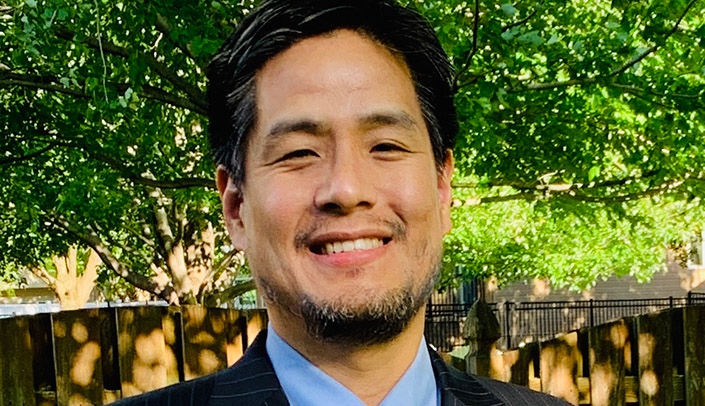Researchers from UNMC and the National Institute of Mental Health (NIMH) are collaborating on a $2.2 million study to advance treatment research for youths who experience anger outbursts, aggressive behavior and have difficulty regulating their emotions.
Too often, the disruptive behaviors, a result of significant irritability and emotional dysregulation (difficulty in controlling emotions), result in youths being referred for psychiatric assessment/treatment, said Soonjo Hwang, MD, UNMC associate professor of psychiatry and the principal investigator of the grant.
If not effectively treated, Dr. Hwang said, the mental health issues can lead to consequences in adulthood, including depressive disorder, anxiety disorder and substance use disorder.
Researchers plan to enroll 80 youths in Nebraska and Iowa between the ages of 14 and 18 to study the impact of different doses of oxytocin on the brain. Oxytocin is a natural hormone produced in the human brain that enhances positive social behavior and positive emotional responses.
Oxytocin previously has been tested for various conditions such as autism spectrum disorder and schizophrenia.
“There’s no previous research or established model that tells us the optimal dose and schedule of oxytocin in the areas in the brain that oxytocin is supposed to target,” Dr. Hwang said. “We know little to nothing if the dose we’ve been using is the best dose for this patient population.
“We plan to verify neural changes by oxytocin in the target areas and the dose-response relationship — the degree of neural changes in the brain by different doses of oxytocin. What we learn will contribute to the advancement of the future research of oxytocin for various psychiatric conditions in youths, and also hopefully provide a potential clinical tool,” he said.
Co-principal investigator Christopher Shaffer, PharmD, of the UNMC College of Pharmacy, will be responsible for measuring the oxytocin levels in the blood and saliva. The measurements and their potential meaning will be analyzed in the newly established Pediatric Clinical Pharmacology Program, a partnership between the UNMC College of Pharmacy and the Child Health Research Institute.
“It is important to find the appropriate dose of medication for children, since most drugs that are approved by the FDA are for adults,” Dr. Shaffer said. “This study will help us determine the best dose of oxytocin in adolescents, a patient population that is not quite a child nor an adult. The results of this study should help us determine the best dose for these teenagers.”
Criteria for participation include youths with diagnoses of attention deficit hyperactivity disorder, oppositional defiant disorder, conduct disorder and disruptive mood dysregulation disorder, and significant levels of irritability (emotional dysregulation, being easily frustrated, having “temper tantrums,” and frequent anger outbursts).
During the randomized, double-blind study, researchers will administer oxytocin by nasal spray and measure levels of oxytocin in blood and saliva during each visit. Functional Magnetic Resonance Imaging will be used to measure the neural changes by oxytocin in the brain. Youths can participate in the study with up to five visits with various doses of oxytocin (from 8IU to 80IU).
The study involves UNMC faculty members from a number of disciplines including the College of Medicine’s Department of Psychiatry and Department of Neurological Sciences, and the College of Pharmacy’s Department of Pharmacy Practice and Science and Department of Biostatistics.
The study also collaborates with NIMH researchers and James Blair and Stuart White at Boystown National Research Hospital.

So proud of the incredible leadership of Dr. Hwang, Dr. Shaffer and the UNMC Psychiatry research team! This study could help many kids who struggle with anger and aggression. We also appreciate the partnership with Dr. Blair and Dr. White at Boys Town and the recognition from the NIMH that oxytocin has great potential for youth mental health!
Excited to be part of this important and potentially ground-breaking study with Dr. Hwang!
This would be a great collaboration , ground-breaking !
Congratulations, Dr. Hwang and team. So proud to have this valuable research at UNMC.